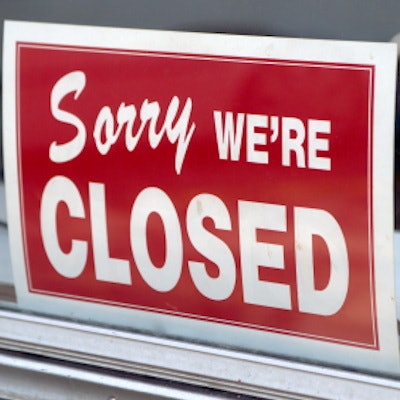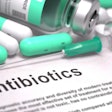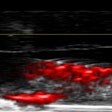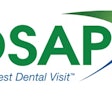
A whopping 46% of dentists believe they will not be able to sustain their practices if they are forced to keep postponing all nonemergency treatments through the end of August due to the COVID-19 pandemic, according to new data from the ADA Health Policy Institute (HPI).
Many of the dentists polled also believe once restrictions are eased or lifted, it will take months for patients to begin to feel comfortable enough to go back to their regular dental routines.
"No one is anywhere near business as usual," said Marko Vujicic, PhD, chief economist and vice president of the HPI, during a webinar held on April 16 that maxed out at 500 attendees.
In an unprecedented move in March, the ADA called on dental practices to postpone elective procedures until at least April 6 in the wake of the growing threat of COVID-19. A few days before the recommendation was expected to end, the ADA asked practices to continue to postpone nonemergency treatments through April 30.
A glimpse at the numbers
In the new survey, the institute collected responses from 6,109 dentists during the week of April 6 to help quantify the economic impact the COVID-19 pandemic is having on the industry.
Those who participated were asked what type of actions they would take to sustain their practices if restrictions continued through the end of April, the end of June, and the end of August.
Of those polled, 4% said they would be unable to sustain their practices if restrictions remained through the end of April. That number jumped to 18% if restrictions extended through June. About 52% also said they would consider adjusting staffing or salaries if they were forced to continue postponing elective procedures through the end of June.
The percentage of practices that would no longer be sustainable if restrictions lingered through the end of August doubled to 46%.
"This is a serious threat," Vujicic said.
A long road back
Vujicic also asked those participating in the webinar when they thought patients would go back to their typical dental routines.
In all, 40% said they expected it to take six to 12 months. Others were more optimistic, with 33% expecting it to take three to six months, and 10% expecting routines to go back to normal within three months. About 18% expect it to take a year, according to responses.
Access to testing may be the answer
Testing has been a hot topic for every nonessential business that has been forced to close due to the pandemic. Many believe that allowing dentists to administer point-of-care tests would allow clinicians to begin seeing patients again.
The ADA has sent a letter to the U.S. Department of Health and Human Services, asking it to issue guidance "as soon as possible" that would make administering rapid COVID-19 detection tests that have been authorized by the U.S. Food and Drug Administration (FDA) part of dentists' existing scope of practice.
Dentists would be considered covered under the Public Readiness and Emergency Preparedness (PREP) Act, which may extend protection from liability associated with the administration or use of FDA-authorized COVID-19 tests, according to the letter signed by Chad Gehani, DDS, the ADA president, and Kathleen O'Loughlin, the association's executive director.
Allowing dentists to perform the tests would better protect dental workers and their patients, they wrote.
"Enabling dentists to test patients prior to dental treatment will help lower the very high exposure risk of dental personnel in contracting COVID-19 when treating infected but asymptomatic patients," the letter states.
Furthermore, front-end testing would allow dental practices to optimize their personal protective equipment (PPE), which is scarce. Though the ADA recognizes that COVID-19 tests also are in short supply, it believes issuing this guidance will move everyone in the right direction.
"Approving dentists to administer these tests now will expand the nation's medical surge capacity, optimize the use of PPE in healthcare settings, and create a safer environment for treating dental patients who would otherwise seek care in overburdened emergency departments," they wrote.
In the interim, the ADA is advising dentists to avoid "gray market" point-of-care tests, noting there is little scientific evidence that tests being marketed to dentists are reliable, according to an ADA News story.
One point-of-care test, ID Now Covid-19, which is being sold by Henry Schein and manufactured by Abbott Labs, is considered reliable. However, it is only being sold to medical professionals and not to dentists. Henry Schein does not anticipate selling the tests to dentists anytime soon due to high demand. Abbott can reportedly only produce 50,000 tests per day.



















